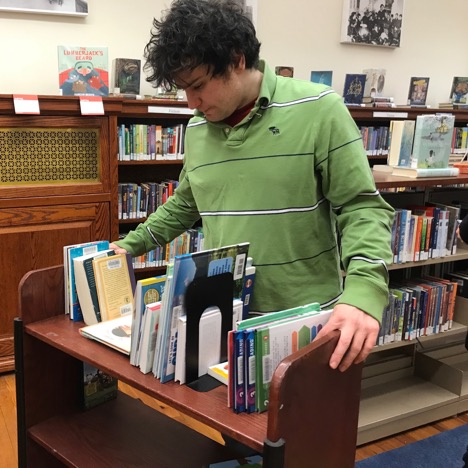by Maxine Rosaler
I really can’t say what bewildered me more–the callousness with which the people at the school district responded to my requests for them to help my autistic son, or the occasional encounters with kindness I had along the way.
My first encounter with kindness occurred during my son’s second week in kindergarten at a special needs school: The principal had called to tell me that she didn’t think the school was an “appropriate” placement for him: He was too impulsive; he didn’t pay attention; he was too much for the staff to handle. Since this was the only halfway decent school that had been willing to accept Benjy, I knew I had to do whatever I could to keep him there, so I told the principal I would hire an aide to go to school with Benjy.
For reasons I can’t recall, both the hiring of the aides, and the funding of those aides fell on me. No one at the local school district was willing to help. So I started making my way up the ranks of the Board of Education (as it was called in the 1990s), and finally I found myself on the phone with Roland Smiley. By then I had developed a canned speech about Benjy: The way I would characterize it to myself was that I would pretend I was talking to a human being, and not some cold-blooded bureaucrat. I would go on and on at great length, describing my son, his sweetness, his intelligence, his gifts, his “potential,” assuming, all along, that the person to whom I was speaking could care less about what I was telling him or her, but still, always hoping, despite myself, that I would find someone to listen, to care and understand.
I had just started in on my spiel when Roland interrupted me and made it clear that he understood exactly what Benjy needed and that he would give it to him. He would fund an aide to go to school with my son. Throughout the years I have depended on Roland for guidance and advice. I have never known a person more dedicated to helping handicapped children than Roland Smiley.
A few years after meeting Roland, it was my good fortune to have Maureen McSwiggan Hardin enter my son’s life. Maureen was Benjy’s psychiatric nurse practitioner for several years. Parents depend on the doctors who care for their disabled children for more than just medical care; we need them to act as advocates for our children as well. This is especially true in the case of autism, for which education, not medicine, is the treatment. In those early years, most of the appointments I made with psychiatrists and neurologists were for the sole purpose of getting them to write letters to support me in my endless efforts to advocate on my son’s behalf (or to sign letters I wrote for them). Not every doctor I took Benjy to see was willing to fulfill that function.
Maureen was Benjy’s psychiatric nurse practitioner during those embattled early years when the school district would use every tactic at their disposal to turn down my requests for “appropriate” placements and services. In their efforts to fight me, they would go from one extreme to another.
At one meeting I was told that if my son required the level of care I claimed he needed then I should send him away to a residential school. At another meeting the district’s only recommendation for a school was one for children with severe autism. (Benjy has what is known as the “high-functioning” kind of autism). On the other extreme, there was one district person who actually went as far to suggest that my son was too smart to really qualify for services. Their standard recourse was (and probably still is) to always to leave parents who disagree with their recommendations with no alternative but to go to the expense and trouble of hiring a lawyer to represent them at what are called “impartial hearings,” which are presided over by hearing officers hired and paid for by the Board of Education.
Parents are required to look at every school their district deems to be “appropriate” for their children, no matter how “inappropriate” we know that school to be. Maureen would take time out of her busy schedule and come with Benjy and me to visit those schools. She and I would work together to try to get the school to reject my son: I would play the part of the impossible mother who would be a nightmare for any school to deal with. And Maureen, in her supremely calm, soft-spoken way, would methodically explain why the school would be “inappropriate” for my son.
I would think of those visits we made to schools together as search and destroy missions: because the way it works with the then-called Board of Education is that if a school that a parent knows would do her child more harm than good ends up accepting her child, and the parent wants her child to go to another school, one not on the Board of Education’s “approved” list of schools, she will have no choice but to bring her complaint to an impartial hearing and the scary fact is that an offer of a placement at an approved school will diminish the chances of having an impartial hearing officer ruling in a parent’s favor. That was why Maureen and I worked so hard to get these schools to reject Benjy.
Maxine Rosaler’s novel in stories, Queen for a Day, which is about the mothers of children with autism, was recently published by Delphinium Press. It received a starred review from Kirkus, which called it: “An engrossing and compassionate collection showing motherhood in its most unrelenting form.”

